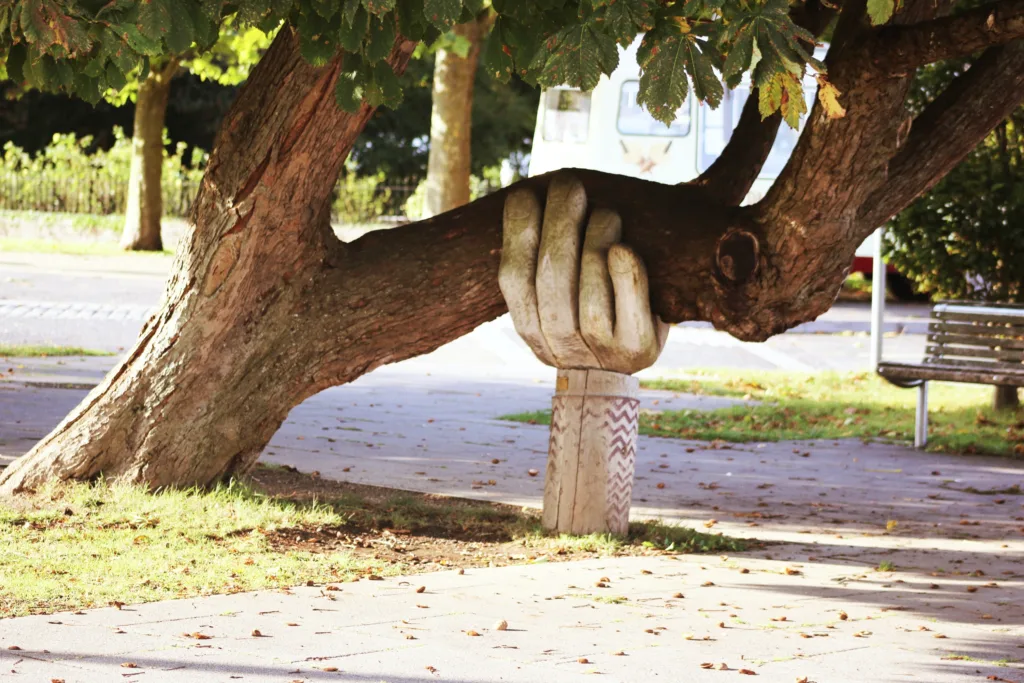
Hi there! You might be curious about how Reiki works its magic, right? Well, let’s talk about it. Reiki, a gentle yet powerful healing technique, is believed to work by promoting balance and relaxation within the body. During a Reiki session, a trained practitioner uses their hands to channel the universal life force energy to the recipient. This energy is said to flow through the practitioner’s palms and into the client, helping to release any energy blockages and restore the natural flow of energy.
The healing process can involve physical, mental, and emotional aspects. Reiki is known to create a sense of calmness, reduce stress, and enhance the body’s ability to heal itself. While the exact mechanism of how Reiki heals is still a mystery, many people find it to be a wonderful complement to traditional medicine and a great support for their overall well-being. So, if you’re interested in exploring this alternative healing method, give Reiki a try and experience its soothing effects for yourself!

Understanding Reiki
What is Reiki?
Reiki is a holistic healing practice that originated in Japan in the early 20th century. The word “Reiki” is composed of two Japanese words, “rei” which means “universal” and “ki” meaning “life force energy.” Therefore, Reiki can be translated as “universal life force energy.” It is based on the concept that every living being has an energy field, and when this energy flow is balanced, it promotes healing and well-being.
History of Reiki
Reiki was developed by Mikao Usui, a Japanese Buddhist monk, in the 1920s. Usui underwent a spiritual awakening and sought to find a way to heal others using this newfound energy. After a period of fasting and meditation on Mount Kurama, he claimed to have achieved enlightenment and the ability to channel Reiki energy.
Usui then began teaching others this healing modality, and it gradually gained popularity both in Japan and in Western countries. Today, Reiki is practiced in various forms around the world, with different schools and lineages preserving its traditional teachings.
Principles of Reiki
Energy Flow and Blockages
The foundation of Reiki healing lies in the concept of energy flow and the identification of blockages within the energy field. According to Reiki principles, these blockages can lead to physical, mental, and emotional ailments. By locating and addressing these blockages, Reiki practitioners aim to restore the harmonious flow of energy in the body.
Balancing the Chakras
Reiki also focuses on the seven chakras, which are the energy centers located along the body’s midline. Each chakra is believed to correspond to different aspects of our physical, emotional, and spiritual well-being. By channeling Reiki energy into the chakras, practitioners aim to clear any blockages and restore balance.
Reiki Practitioner’s Role
Channeling Universal Energy
In Reiki, the practitioner serves as a channel for the universal life force energy. They do not manipulate or direct the energy but rather allow it to flow through them into the recipient. This energy is believed to be intelligent and knows where it is needed most for healing. The practitioner acts as a facilitator, creating a safe space for the energy to flow.
Setting Intentions
Intention is a crucial aspect of Reiki healing. The practitioner sets the intention for the highest good of the recipient, focusing on their healing and well-being. By setting clear and positive intentions, the Reiki energy becomes more focused and effective.
Physical Healing
Boosting the Immune System
Reiki has been reported to boost the immune system by promoting relaxation and reducing stress. When the body is in a relaxed state, it can allocate more energy towards its natural healing processes. Studies have shown that Reiki sessions can lead to increased levels of white blood cells, which are essential for immune function.
Relieving Pain and Inflammation
Reiki has also been found to provide pain relief and reduce inflammation. By balancing the energy flow and releasing blockages, Reiki can alleviate discomfort and promote healing in the physical body. Many individuals with chronic pain conditions have reported significant improvements in their symptoms after regular Reiki treatments.

Mental and Emotional Healing
Reducing Stress and Anxiety
Reiki is known for its ability to induce deep relaxation and reduce stress levels. During a Reiki session, the recipient often experiences a sense of calmness and peace. This relaxation response can help alleviate symptoms of anxiety and promote mental well-being.
Promoting Emotional Release
Emotional blockages and traumas can manifest as physical symptoms or hinder personal growth. Reiki can help release these emotional blockages by creating a safe space for the recipient to process and release stored emotions. This emotional release can lead to a greater sense of balance, clarity, and emotional well-being.
Spiritual Healing
Connecting with Higher Consciousness
Reiki is not affiliated with any particular religion, but it does have a spiritual aspect. The practice of Reiki aims to connect the recipient with their higher consciousness or spiritual self. This connection can provide a sense of purpose, inner peace, and connection to something greater than oneself.
Promoting Spiritual Growth
Through regular Reiki sessions, individuals may experience a deepening of their spiritual journey. Reiki can help individuals tap into their intuition, enhance their self-awareness, and develop a greater sense of spiritual growth and enlightenment.

The Mind-Body Connection
Addressing Energetic Imbalances
Reiki recognizes the intricate connection between the mind, body, and spirit. By addressing energetic imbalances within the energy field, Reiki can influence the physical, mental, and emotional well-being of an individual. Restoring balance in the energy field can have positive effects on all aspects of a person’s being.
Enhancing Well-Being
By promoting balance and harmony within the mind-body connection, Reiki can enhance overall well-being. It can support individuals in managing their emotions, making healthier lifestyle choices, and developing a greater sense of self-awareness and self-care.
Reiki and Energy Medicine
Reiki as Complementary Therapy
Reiki is often used as a complementary therapy alongside conventional medical treatments. It can support the body’s natural healing processes and enhance the efficacy of other medical interventions. Reiki sessions can provide a sense of comfort, relaxation, and support for individuals undergoing medical treatments or dealing with chronic health conditions.
Harmonizing the Energy Field
Energy medicine recognizes that imbalances in the energy field can manifest as physical or emotional ailments. Reiki is a modality that aims to harmonize the energy field and promote overall well-being. By restoring balance and flow within the energy field, Reiki can support holistic healing on multiple levels.
Scientific Perspectives
Effects on the Autonomic Nervous System
Scientific studies have investigated the physiological effects of Reiki on the autonomic nervous system. These studies have shown that Reiki can activate the parasympathetic nervous system, which is responsible for the relaxation response. This activation leads to a decrease in heart rate, blood pressure, and stress hormone levels.
Influence on Biochemical Reactions
Research has also explored the influence of Reiki on biochemical reactions in the body. Studies have shown that Reiki can increase levels of certain neurotransmitters and neuropeptides associated with relaxation, pain relief, and overall well-being. These biochemical changes suggest that Reiki has a measurable impact on the body’s physiological processes.
Benefits of Reiki Healing
Physical Health Benefits
The physical health benefits of Reiki include immune system support, pain relief, reduction in inflammation, and promotion of natural healing processes. Regular Reiki treatments can help individuals maintain their overall well-being and support their physical health.
Mental and Emotional Well-being
Reiki can promote mental and emotional well-being by reducing stress, anxiety, and promoting emotional release. The relaxation response induced by Reiki sessions creates a safe space for emotional healing and personal growth.
In conclusion, Reiki is a holistic healing practice that aims to restore balance and harmony within the mind, body, and spirit. By addressing energetic imbalances, Reiki can support physical healing, emotional well-being, and spiritual growth. With its increasing popularity and numerous reported benefits, Reiki continues to be a powerful complementary therapy in promoting overall wellness.









